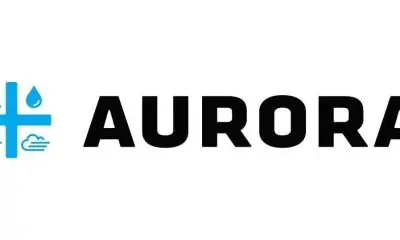Almost seven years since news broke of an alleged conspiracy to fix the price of packaged bread across Canada, the saga isn’t over: the Competition Bureau continues to investigate the companies that may have been involved, and two class-action lawsuits continue to work their way through the courts.
Here’s a timeline of key events in the bread price-fixing case.
Oct. 31, 2017: The Competition Bureau says it’s investigating allegations of bread price-fixing and that it was granted search warrants in the case. Several grocers confirm they are co-operating in the probe.
Dec. 19, 2017: Loblaw and George Weston say they participated in an “industry-wide price-fixing arrangement” to raise the price of packaged bread. The companies say they have been co-operating in the Competition Bureau’s investigation since March 2015, when they self-reported to the bureau upon discovering anti-competitive behaviour, and are receiving immunity from prosecution. They announce they are offering $25 gift cards to customers amid the ongoing investigation into alleged bread price-fixing.
Jan. 31, 2018: In court documents, the Competition Bureau says at least $1.50 was added to the price of a loaf of bread between about 2001 and 2016.
Dec. 20, 2019: A class-action lawsuit in a Quebec court against multiple grocers and food companies is certified against a number of companies allegedly involved in bread price-fixing, including Loblaw, George Weston, Metro, Sobeys, Walmart Canada, Canada Bread and Giant Tiger (which have all denied involvement, except for Loblaw and George Weston, which later settled with the plaintiffs).
Dec. 31, 2021: A class-action lawsuit in an Ontario court covering all Canadian residents except those in Quebec who bought packaged bread from a company named in the suit is certified against roughly the same group of companies.
June 21, 2023: Bakery giant Canada Bread Co. is fined $50 million after pleading guilty to four counts of price-fixing under the Competition Act as part of the Competition Bureau’s ongoing investigation.
Oct. 25 2023: Canada Bread files a statement of defence in the Ontario class action denying participating in the alleged conspiracy and saying any anti-competitive behaviour it participated in was at the direction and to the benefit of its then-majority owner Maple Leaf Foods, which is not a defendant in the case (neither is its current owner Grupo Bimbo). Maple Leaf calls Canada Bread’s accusations “baseless.”
Dec. 20, 2023: Metro files new documents in the Ontario class action accusing Loblaw and its parent company George Weston of conspiring to implicate it in the alleged scheme, denying involvement. Sobeys has made a similar claim. The two companies deny the allegations.
July 25, 2024: Loblaw and George Weston say they agreed to pay a combined $500 million to settle both the Ontario and Quebec class-action lawsuits. Loblaw’s share of the settlement includes a $96-million credit for the gift cards it gave out years earlier.
Sept. 12, 2024: Canada Bread files new documents in Ontario court as part of the class action, claiming Maple Leaf used it as a “shield” to avoid liability in the alleged scheme. Maple Leaf was a majority shareholder of Canada Bread until 2014, and the company claims it’s liable for any price-fixing activity. Maple Leaf refutes the claims.
This report by The Canadian Press was first published Sept. 19, 2024.
Companies in this story: (TSX:L, TSX:MFI, TSX:MRU, TSX:EMP.A, TSX:WN)



































